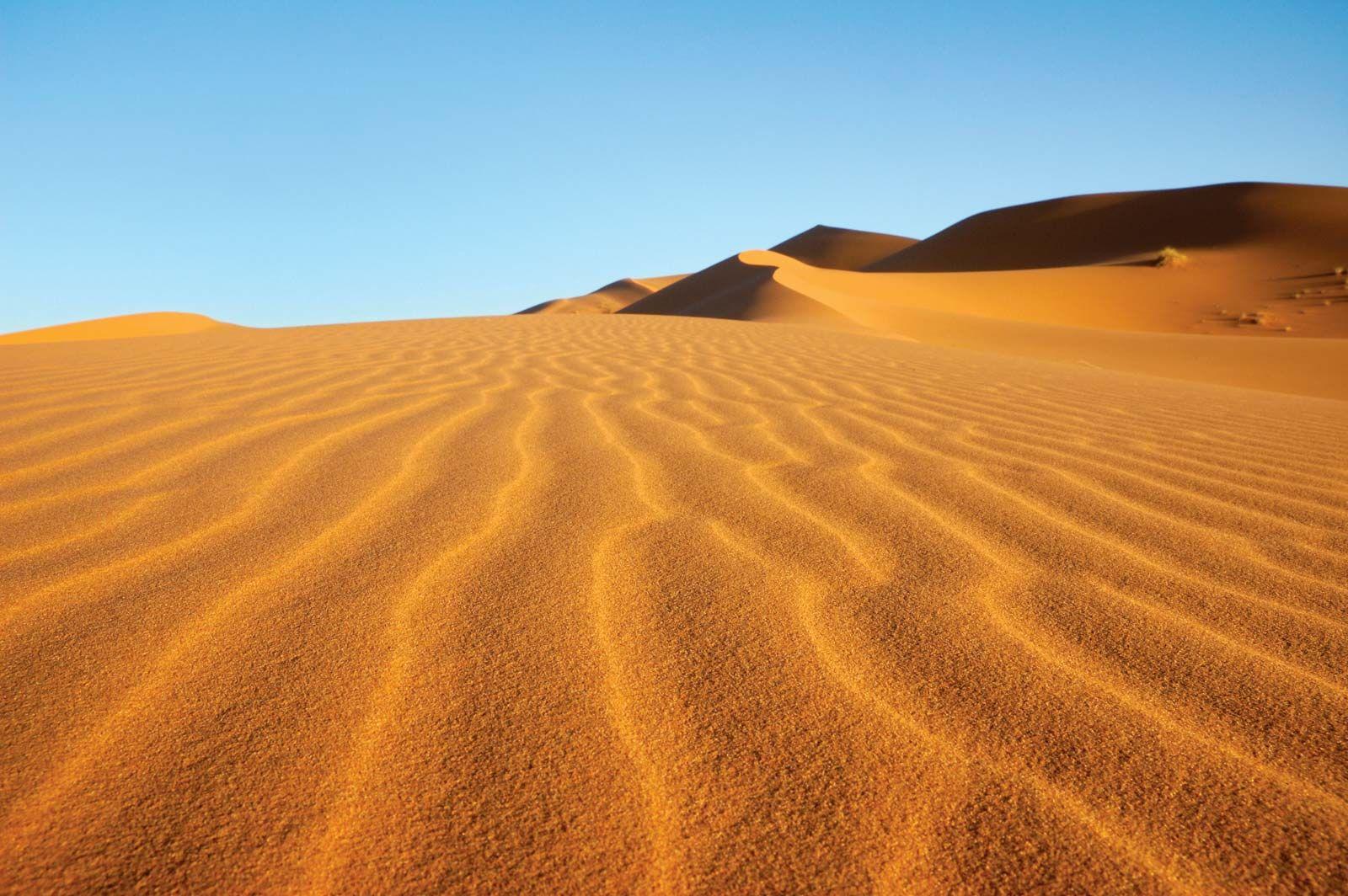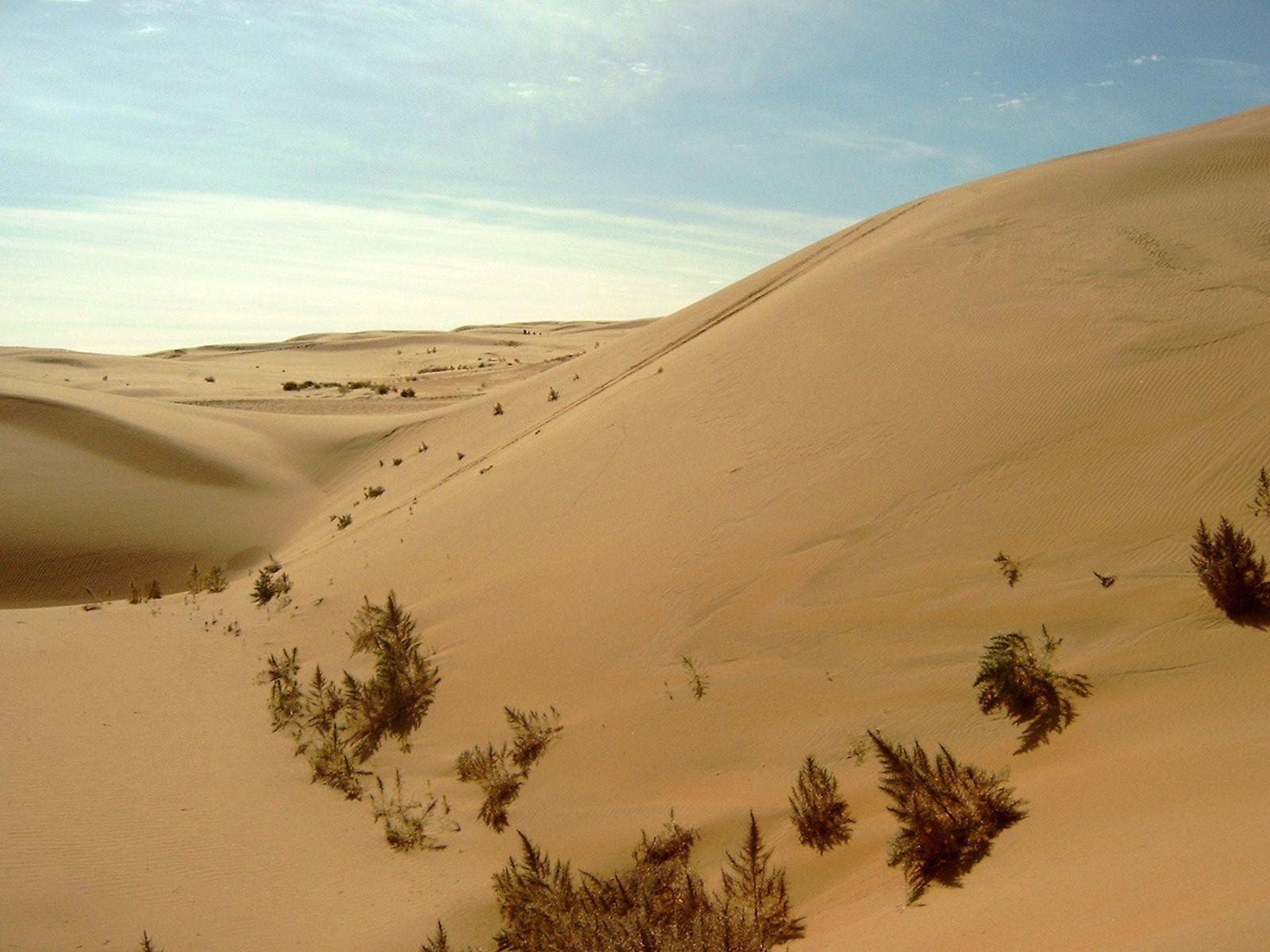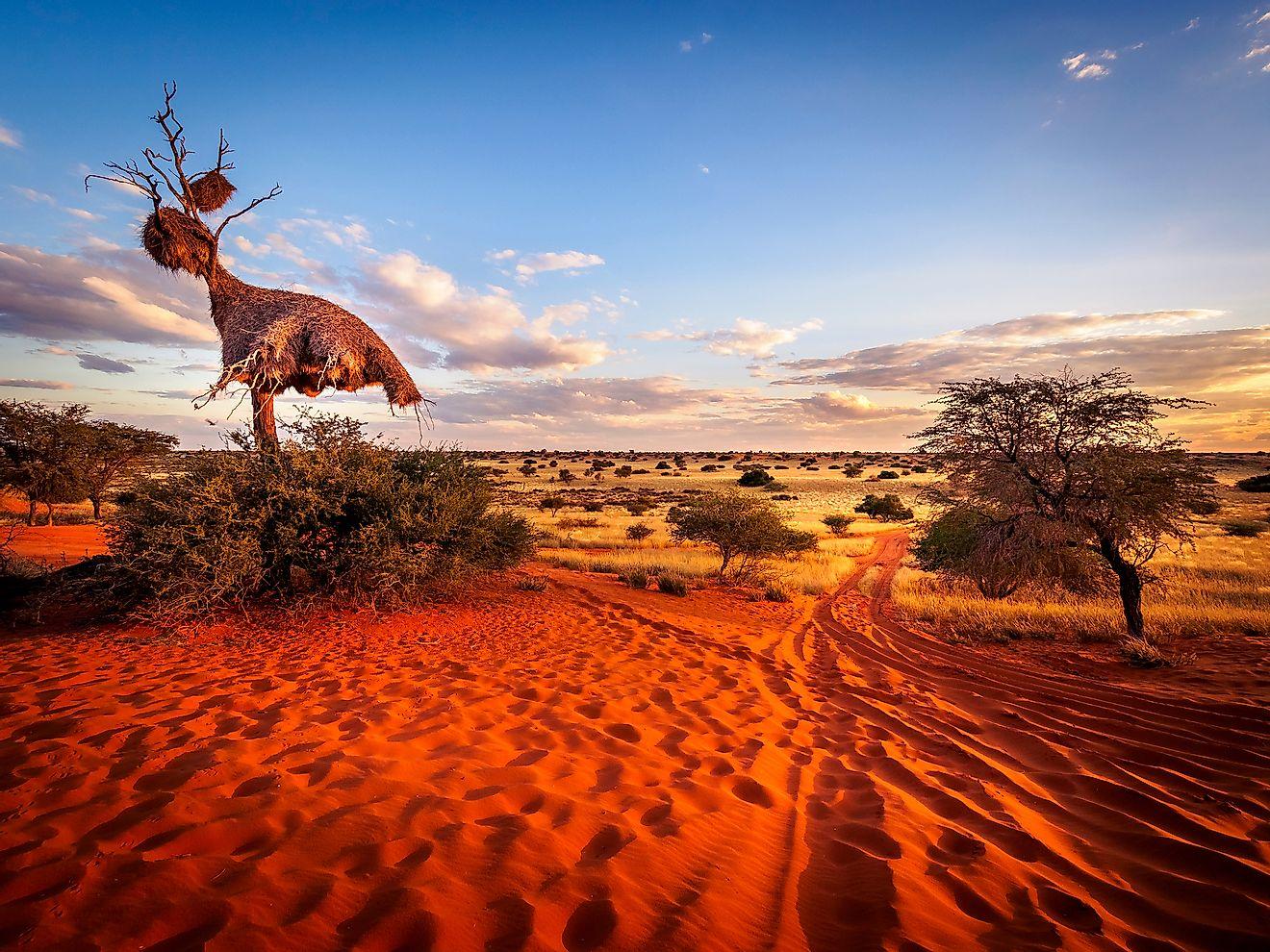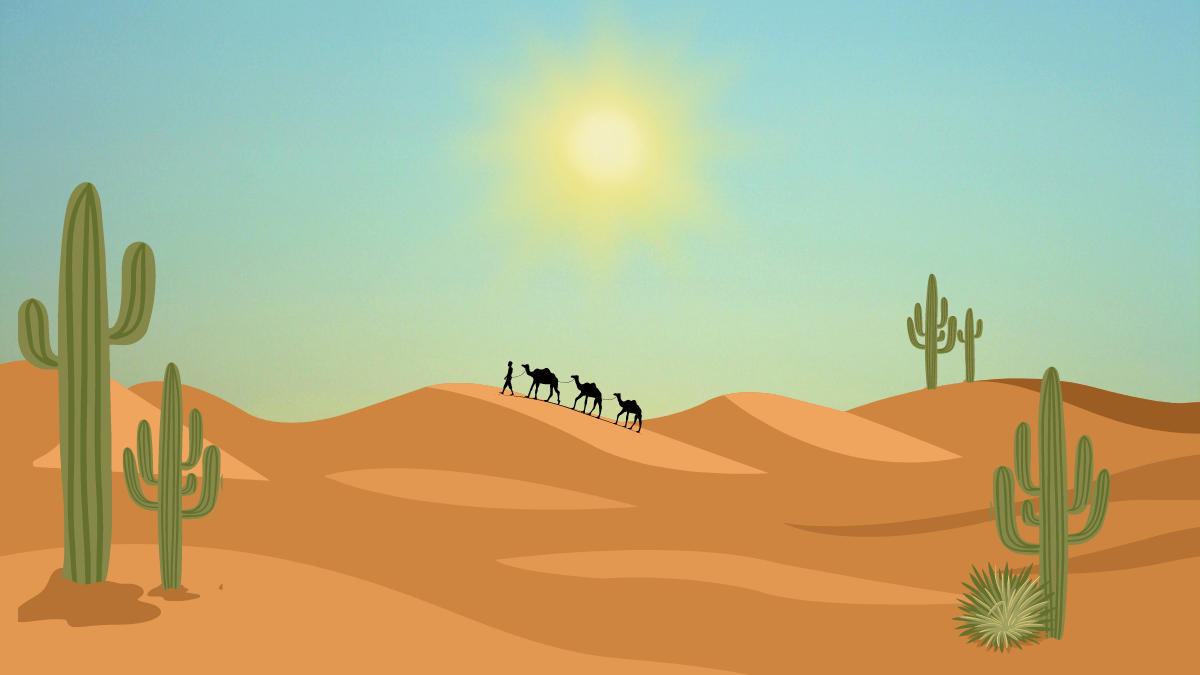Deserts, with their vast stretches of barren land and extreme climates, hold a mystique that has fascinated humanity for centuries. From the scorching sands of the Sahara to the icy expanses of Antarctica, these desolate landscapes are home to unique ecosystems and geological wonders. Here, we delve into the top 10 largest deserts in the world, each offering its own blend of awe-inspiring beauty and harsh challenges.
Types of deserts
There are four main types of deserts:
- Hot & dry deserts
- Cold deserts
- Coastal deserts
- Semi-arid deserts
World’s Largest Desert
The largest desert in the world is the Antarctica Desert, covering approximately 14,200,000 square kilometers. Situated in Antarctica and surrounding oceanic areas, it features freezing temperatures and a thick ice sheet. Remarkably, this desert holds nearly 70% of the Earth’s freshwater as ice. Despite its immense size, it experiences extremely low precipitation, earning its classification as a polar desert. Home to unique wildlife such as penguins, seals, and various seabird species, the Antarctica Desert also contains invaluable records of Earth’s climate history within its deep ice sheet, which can reach depths of over two miles in some areas.
Top 10 Largest Desert in the World
The largest desert in the world is the Antarctica Desert located in Antarctica and covers an area of about 14,200,000 (sq.km), followed by Arctic Desert, Sahara Desert and Great Australian.
Here is the list of top 10 largest Desert in the world:
| S. No. | Name | Type | Location | Area (in sq.km) | Area (in sq.mi) |
| 1. | Antarctica Desert | Polar ice and Tundra | Antarctica | 14,200,000 | 5,482,651 |
| 2. | Arctic Desert | Polar ice and Tundra | Eastern Europe
Northern America Northern Asia Northern Europe |
13,900,000 | 5,366,820 |
| 3. | Sahara Desert | Subtropical | Eastern Africa
Middle Africa Northern Africa Western Africa |
9,200,000 | 3,552,140 |
| 4. | Great Australian | Subtropical | Australia | 2,700,000 | 1,042,476 |
| 5. | Arabian Desert | Subtropical | Western Asia | 2,330,000 | 899,618 |
| 6. | Gobi Desert | Cold winter | Eastern Asia | 1,295,000 | 500,002 |
| 7. | Kalahari Desert | Subtropical | Southern Africa | 900,000 | 347,492 |
| 8. | Patagonian Desert | Cold winter | South America | 673,000 | 259,847 |
| 9. | Syrian Desert | Subtropical | Western Asia | 500,000 | 193,051 |
| 10. | Great Basin | Cold winter | North America | 492,098 | 190,000 |
Largest Desert in the World: Antarctica Desert

Some of the key points related to Antarctica Desert, World’s largest desert are as follows:
- The largest desert in the world is the Antarctica Desert which covers about 14,200,000 sq.km area.
- It is located in Antarctica and surrounding oceanic areas, with freezing temperatures and a thick ice sheet.
- The Antarctica Desert holds nearly 70% of the Earth’s freshwater in the form of ice.
- Despite being cold and icy, the Antarctica Desert experiences extremely low precipitation.
- It surpasses other renowned desert like the Sahara in North Africa in terms of size.
- The Antarctica Desert is classified as a polar desert due to its frigid conditions.
- This desert is home to unique wildlife including penguins, seals and various seabird species.
- The desert’s ice sheet contains valuable records of Earth’s climate history.
- The ice sheet in the Antarctica Desert can reach depths of over two miles in some areas.
Second Largest Desert of the World: Arctic Desert
Area: 13,900,000 sq. km
Location: Artic Ocean Islands north of Norway and Russia
The Arctic Desert is the second largest desert in the world, located in the northern polar region of Earth. The desert stretches across an area of the Arctic Ocean 2,000 km from east to west and 1,000 km from north to south, covering a number of island groups of the north coast of Norway and Russia.
Third Largest Desert in the World: Sahara Desert

Area: 9.1 million sq. km
Location: North Africa
Sahara Desert is the biggest hot desert and third biggest desert in the world, covering an area of 3.5 million sq. miles (9.1 million sq. km) of dry and windy landscapes.
The Sahara Desert takes up much of the Northern Africa, reaching from the Atlantic Ocean to the Mediterranean Sea and even the Red Sea. Close to these oceans, the Sahara gets a little bit of rain, around 4 to 10 inches every year.
Great Australian Desert
Area: 2,700,000 sq. km
Location: Australia
The Great Australian Desert is the fourth largest desert in the world, covering an area of about 18% of the landmass of the Australian mainland.
Australia is the driest continent in the world. Around 35% of the continent receives so little rain, it is close to being classed as a desert. The Australian Desert receives uneven rainfall.
The Arabian Desert
Area: 2,330,000 sq. km
Location: Middle East
The Arabian Desert is one of the largest deserts in the world. It is not same as the Syrian or North Arabian Deserts. It’s the second biggest subtropical desert, covering a huge space of 2.3 million sq. km all over the Arabian Peninsula. The Arabian Desert is also home to 102 endemic species of mammals and 310 various species of birds.
Gobi Desert

Area: 1,295,000 sq. km
Location: Eastern Asia
The Gobi Desert, spanning northern China and southern Mongolia, is a vast cold desert and grassland area, ranking as the world’s sixth-largest desert. Its name, “Gobi,” originates from the Mongolian term denoting all arid regions on the Mongolian Plateau. In Chinese, “Gobi” specially signifies rocky, semi-arid landscapes like the Gobi, rather than sandy deserts.
Kalahari Desert

Area: 900,000 sq. kilometers
Location: South Africa
The Kalahari Desert, spanning 900,000 sq. kilometers in Southern Africa, is a vast semi-arid sandy savanna. It stretches across Bostwana and reaches into parts of Namibia and South Africa. It is distinct from the Namib coastal desert in Angola, Namibia and South Africa, which is known as a “vast place” in the Khoekhoegowab language.
Find More General Studies News Here



 Paris Olympics 2024 Medal Tally, India M...
Paris Olympics 2024 Medal Tally, India M...
 Which District of Madhya Pradesh is Famo...
Which District of Madhya Pradesh is Famo...
 EC Signs Electoral Cooperation Pact with...
EC Signs Electoral Cooperation Pact with...

